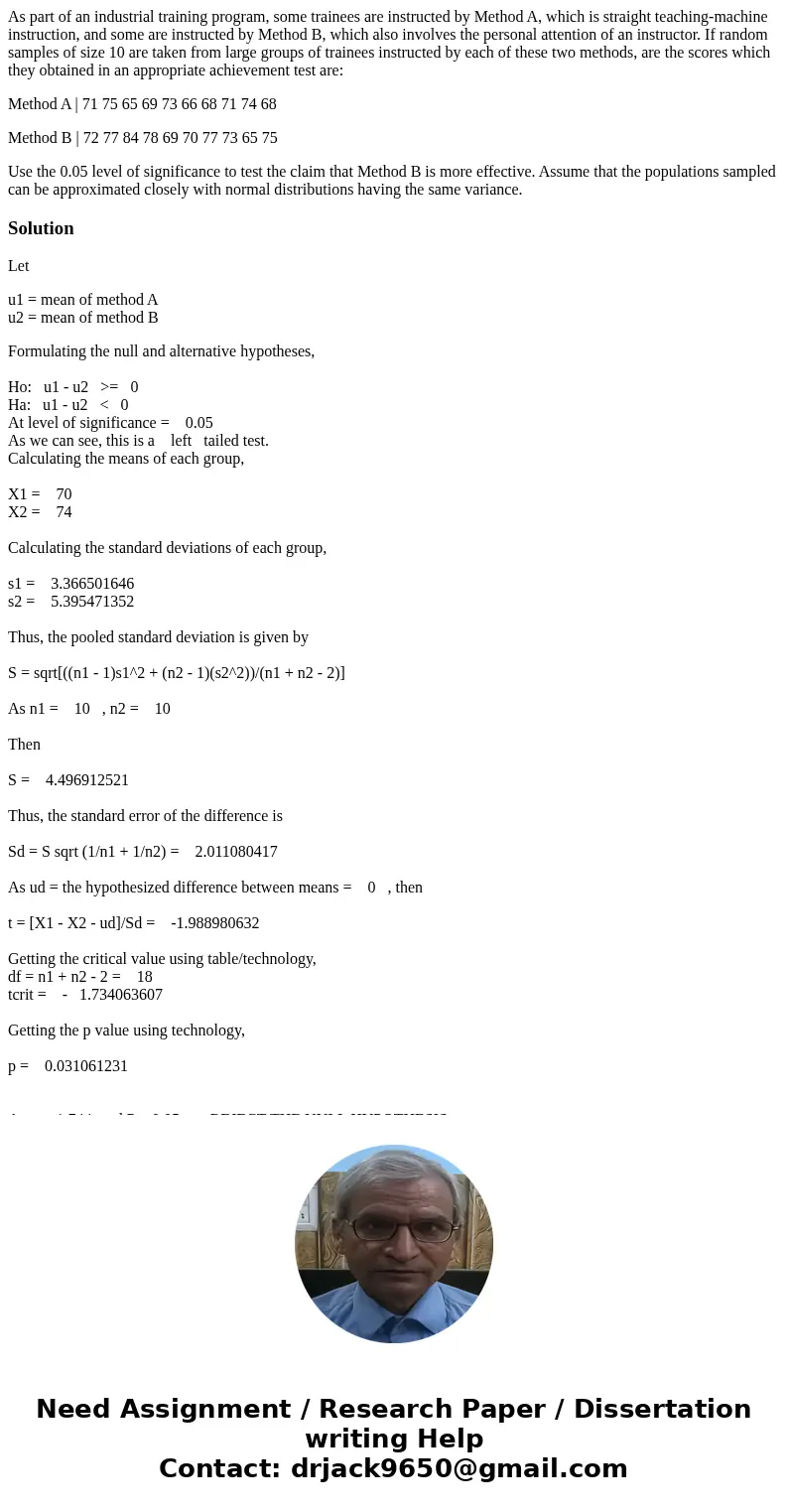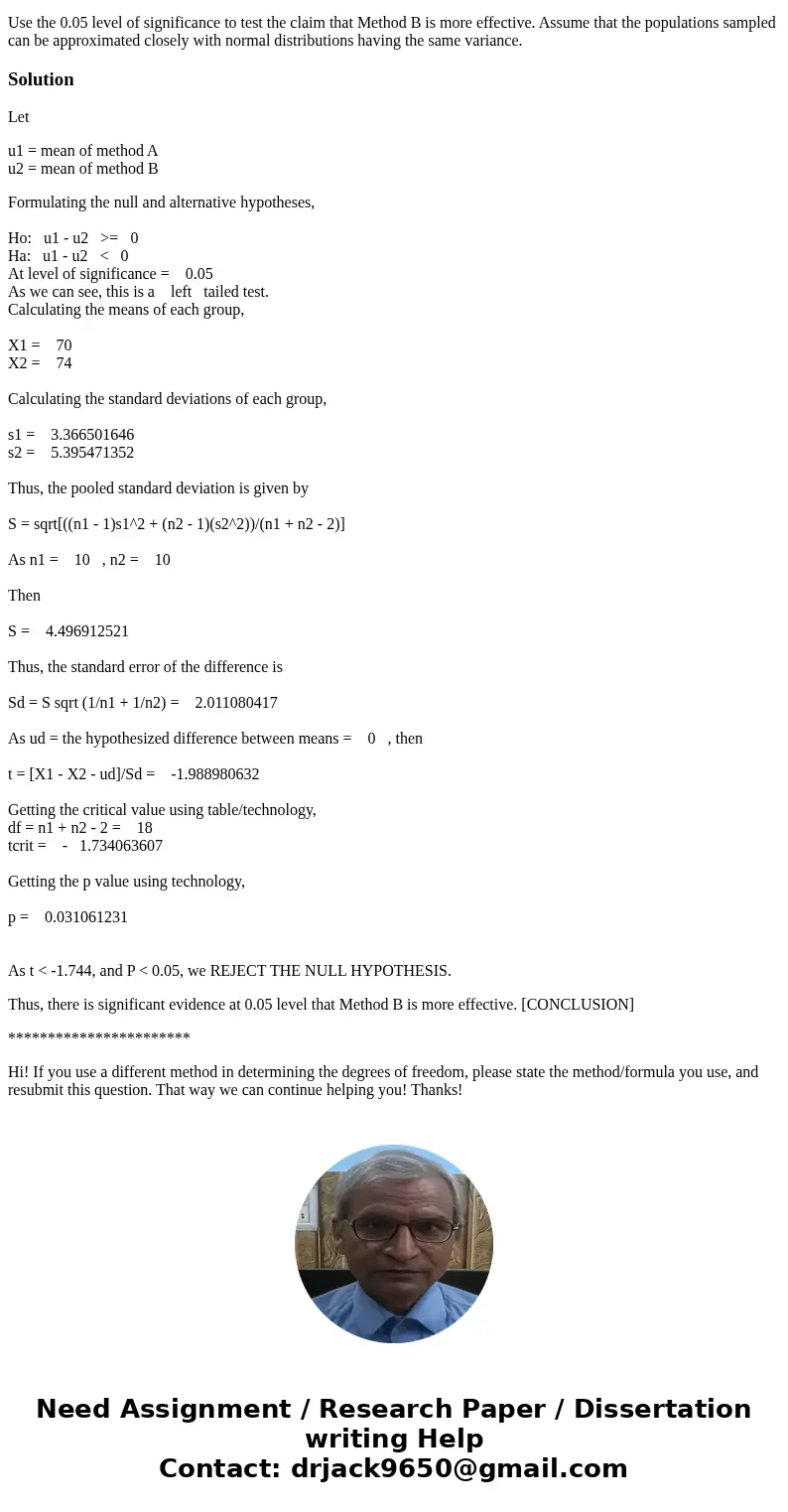As part of an industrial training program some trainees are
As part of an industrial training program, some trainees are instructed by Method A, which is straight teaching-machine instruction, and some are instructed by Method B, which also involves the personal attention of an instructor. If random samples of size 10 are taken from large groups of trainees instructed by each of these two methods, are the scores which they obtained in an appropriate achievement test are:
Method A | 71 75 65 69 73 66 68 71 74 68
Method B | 72 77 84 78 69 70 77 73 65 75
Use the 0.05 level of significance to test the claim that Method B is more effective. Assume that the populations sampled can be approximated closely with normal distributions having the same variance.
Solution
Let
u1 = mean of method A
u2 = mean of method B
Formulating the null and alternative hypotheses,
Ho: u1 - u2 >= 0
Ha: u1 - u2 < 0
At level of significance = 0.05
As we can see, this is a left tailed test.
Calculating the means of each group,
X1 = 70
X2 = 74
Calculating the standard deviations of each group,
s1 = 3.366501646
s2 = 5.395471352
Thus, the pooled standard deviation is given by
S = sqrt[((n1 - 1)s1^2 + (n2 - 1)(s2^2))/(n1 + n2 - 2)]
As n1 = 10 , n2 = 10
Then
S = 4.496912521
Thus, the standard error of the difference is
Sd = S sqrt (1/n1 + 1/n2) = 2.011080417
As ud = the hypothesized difference between means = 0 , then
t = [X1 - X2 - ud]/Sd = -1.988980632
Getting the critical value using table/technology,
df = n1 + n2 - 2 = 18
tcrit = - 1.734063607
Getting the p value using technology,
p = 0.031061231
As t < -1.744, and P < 0.05, we REJECT THE NULL HYPOTHESIS.
Thus, there is significant evidence at 0.05 level that Method B is more effective. [CONCLUSION]
***********************
Hi! If you use a different method in determining the degrees of freedom, please state the method/formula you use, and resubmit this question. That way we can continue helping you! Thanks!


 Homework Sourse
Homework Sourse